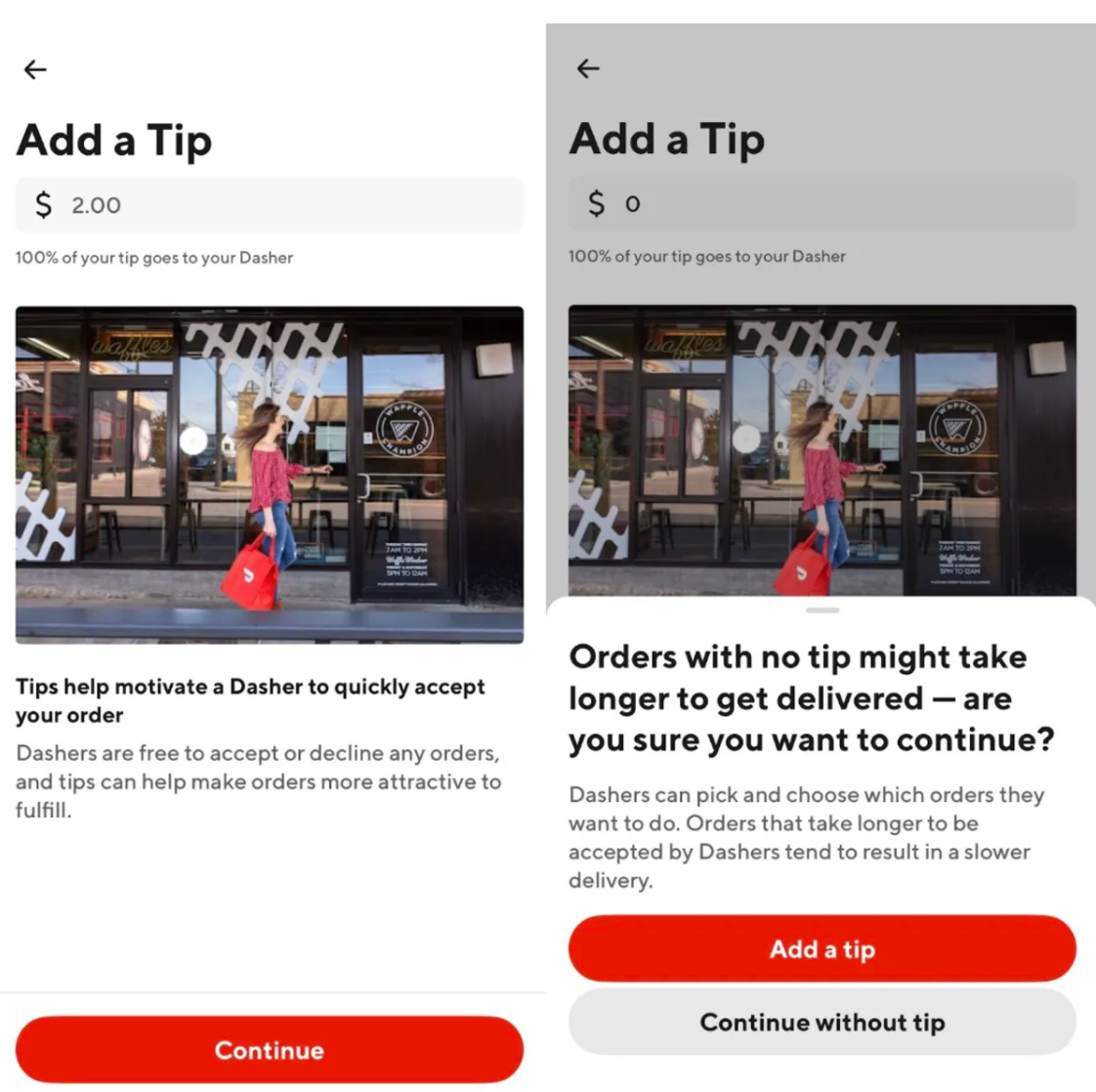DoorDash Delays Orders Without Tips
DoorDash is piloting a new screen warning customers that no tip could mean a delayed order. The messaging illustrates principles of persuasive communication.
DoorDash’s message framing encourages tips, even though the process is punishing. In the statement title and subtitle, the company emphasizes “quality” and “the best possible experience for Dashers, consumers, and merchants.” These frames are clever alternatives to claims about pay fairness because that would reflect poorly on the company, which some customers call out in tweets about paying a living wage.
Another strategy DoorDash uses is deflecting responsibility, or blame, onto the drivers:
In the event that a consumer chooses to not leave a tip, we also let them know that their order may take longer to be accepted as a result. This is because—as independent contractors—Dashers have full freedom to accept or reject offers based on what they view as valuable and rewarding. Since launching this test, we’ve seen a meaningful decrease in no-tip orders.
In that last bit, DoorDash evokes peer influence, which also is used at the beginning of the statement: “That’s why we encourage consumers to show their appreciation by tipping—and the vast majority do.” The idea is for customers to get on board with the majority: if they hadn’t been tipping, as most do, then they should begin now, as more have.
The statement rambles a bit, and students might identify a contradiction towards the end:
The test does not impact DoorDash’s commitment to quality or how orders are fulfilled. Our goal is to deliver the best possible experience—regardless of the amount a consumer tips—on each and every order.
But isn’t the objective of the pilot—more tipping—to improve quality? For most people, a delayed order isn’t the best possible experience.
Customers point out another contradiction, which is tipping before service. But, as Michael Lynn, who has studied tipping for decades, says, “Ultimately, social approval’s the main reason we tip,” so DoorDash’s peer influence strategy should work. For more about the morality of tipping, David Brooks offers one perspective, which is that we should tip generously regardless of service.

